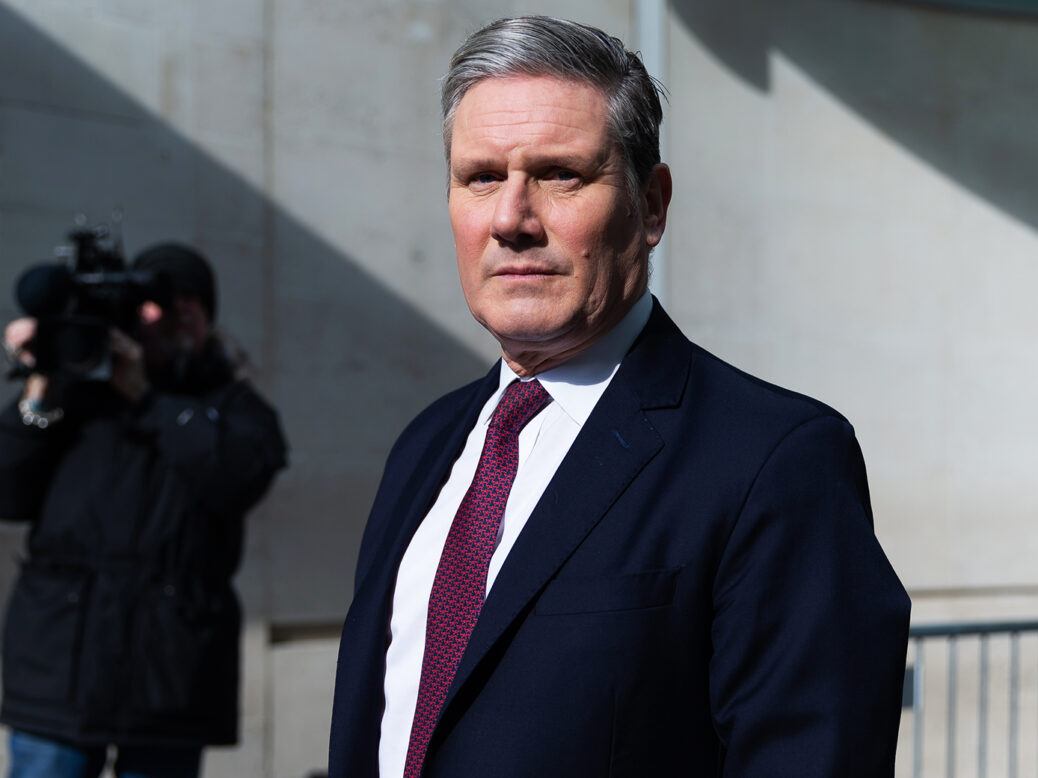
Westminster loves a scandal, so perhaps it’s no surprise a beer and a curry during a campaign event in Durham have received so much attention. There was a burst of frothing excitement from the press at Keir Starmer’s announcement that he would resign if he receives a fine for having a dinner break in Durham. According to commentators, he is deliberately taking a big risk. I disagree. Starmer is not a rule breaker – he never has been. He defines himself by his integrity and respect for the law. However this ends up – and I am sure that we will find that the Labour leader adhered to the rules – he has demonstrated a consistent and principled approach which is so different from the slippery and consummate lying that defines our prime minister.
Cracking down on kleptocrats
Putting the tabloids’ obsession with curries to one side, I try to do what I have always done – make progress on the issues I care about. The big event in my calendar was the launch of a new initiative to drive out dirty money from our financial system. As chair of the all-party parliamentary group (APPG) on anti-corruption and responsible tax, I released our Economic Crime Manifesto, together with Kevin Hollinrake MP, the Conservative chair of the APPG on fair business banking. We are building a cross-party, back-bench coalition to persuade the government to act seriously on money laundering and fraud. There is a groundswell of support from MPs keen to join our campaign.
I was first plunged into this world of financial wrongdoing when I chaired parliament’s Public Accounts Committee. Through hearings with Amazon, Google and Starbucks it became obvious that big corporations use complex financial structures – such as offshore tax havens and shell companies – to reduce tax. It didn’t take long to learn that the same structures are used by kleptocrats and oligarchs to hide and then launder their illicit finance in the legitimate system.
[See also: British greed for dirty money emboldened Putin’s Russia]
Britain has become the jurisdiction of choice for dirty money. Our poor regulation of financial and professional services, our pathetically underfunded enforcement agencies, and our lack of transparency and accountability make it near impossible to follow the money and enforce the law. The cost of this economic crime is immense – an estimated £290bn a year. That’s roughly equivalent to 25 per cent of annual public spending. It’s depressing that it took the war in Ukraine to bring the issue centre stage, but we must grasp the opportunity to bear down on this corruption.
Our Economic Crime Manifesto is full of pragmatic reforms that will help us do just that. It’s great to work in a positive way with MPs from all parties, building a consensus that the government cannot resist. It shows parliament at its best.
The doctor won’t see you now
Next on my agenda is a difficult meeting with my friend Jacqui Smith, who now chairs two NHS healthcare trusts in north-east London. I know our friendship is strong enough to survive a policy disagreement. The latest “deckchairs on the Titanic” proposal is yet another reorganisation to merge all the local hospitals. That inevitably means that in the fight for limited resources, the powerful teaching hospitals – such as St Bartholomew’s and the Royal London – will win and in poorer areas, such as in my constituency of Barking, where health outcomes are worse, local services will suffer. Health inequalities will simply get bigger.
I finally managed to meet with a group of local GPs who work in Barking after my constituents complained that it can take six weeks to get an appointment. GPs know that their patients need more but they are spending too much time responding to problems arising from the cost-of-living crisis. One case they described was of a patient who has a chronic heart condition that requires regular medication. She exercises frequently and watches her weight; but she can’t afford the prescription and so isn’t taking the drugs she needs. The outlook for her, and many like her, is grim.
Start them young
At least my week ended with a bit of joy. The real celebrity in our family is my grandson, who has been scouted by Arsenal and is making a real name for himself as a goalie in their academy. I took him to his training session and he was ecstatic at meeting some of his heroes, including Granit Xhaka and Cédric Soares. The way things are going, one day I may need him to pay for my residential care as the Tories will undoubtedly fail to sort it out. But at only seven, he’s got a little way to go! Everybody tells me it’s harder to become a professional footballer than it is to become a High Court judge. Yet as a proud granny, I’m full of hope.
[See also: We’re told apps, AI and video calls will transform the NHS. What about GPs?]
Hear from the UK’s leading politicians on the most pressing policy questions facing the UK at NS Politics Live, in London. Speakers include Sir Keir Starmer, Ben Wallace, Lisa Nandy, Sajid Javid, Professor Sarah Gilbert, Jeremy Hunt, Layla Moran and Andrew Marr. Find out more about the New Statesman’s flagship event on the 28 June here.
This article appears in the 18 May 2022 issue of the New Statesman, Putin vs Nato






